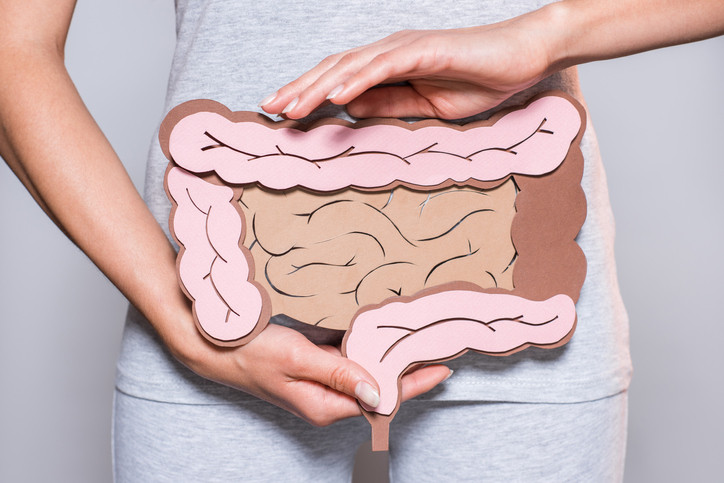
Trying to lose weight? Be careful not to lose muscle

Is your skin problem actually an autoimmune condition?

People with diabetes face higher risk of hearing loss

Antibiotic-free fixes for recurrent UTIs

Musculoskeletal syndrome of menopause: When menopause makes you ache all over

When can older women stop getting mammograms?

To lose weight, especially harmful belly fat, combine diet and exercise

Can men hold off on treating recurring prostate cancer?

The 7 types of rest and why we need them all

What are the early warning signs of cervical cancer?
Harvard Health Blog
Read posts from experts at Harvard Health Publishing covering a variety of health topics and perspectives on medical news.
Articles
What donor offspring seek when they do DNA testing
Readily available DNA testing unexpectedly changed some family trees. But people who grew up knowing –– or recently learned –– they were donor-conceived may have differing reasons for wanting to better understand their personal stories.
Weekend catch-up sleep won’t fix the effects of sleep deprivation on your waistline
Trying to make up for not getting enough sleep during the week by sleeping longer on weekends has been found to have negative effects such as weight gain, expending less energy, and increased calorie intake during evenings.
Intensive blood sugar control doesn’t have lasting cardiovascular benefits for those with diabetes
A recent 15-year follow-up to the Veterans Affairs Diabetes Trial found that short-term intensive blood sugar control did not lead to significant reduction of risk of cardiovascular events in the long term.
Common hormonal treatments linked to abnormal heart rhythms and sudden death in men being treated for prostate cancer
Treatments for advanced prostate cancer that suppress testosterone, a hormone (also called an androgen) that drives the malignant cells to grow and spread, are collectively referred to as androgen deprivation therapies, or ADT. These therapies can significantly extend lifespans in men who have the disease, but they also have a range of challenging side effects. […]
Harvard Health Ad Watch: How direct-to-consumer ads hook us
Direct-to-consumer (DTC) drug ads promoting treatments for arthritis, cancer, heartburn, psoriasis, flagging memory, and more are all everywhere you look. All too often, the information shared is incomplete, biased, or confusing––here's what to watch out for and how to get the whole story when considering treatment options.
New medication advances treatment for chronic rhinosinusitis with nasal polyps
The FDA has approved a new medication for the treatment of chronic rhinosinusitis with nasal polyps, dupilumab, which is given by injection biweekly.
Does Botox reduce the frequency of chronic migraine?
People who experience chronic migraine headaches may benefit from treatment with botulimun neurotoxin (Botox), though other treatments such as medication are usually tried first.
Sleep driving and other unusual practices during sleep
The FDA has issued its most serious category of warning about three sleep medications due to reports of injuries related to their use. Aside from next-day drowsiness, these medications can cause sleep behaviors that may be dangerous.
Your risk of dementia: Do lifestyle and genetics matter?
Clinical trials for drugs to stop or slow the progression of dementia have not been successful. A recent study attempted to determine how much influence, if any, genetic and lifestyle factors may have on the development of dementia.
Psychotherapy leads in treating post-traumatic stress disorder
Expert recommendations for treating post-traumatic stress disorder (PTSD) differ. New research supports trying certain types of psychotherapy first, followed by medication if needed, or starting off with a combination of both.
Why are diabetes-related complications on the rise?
From 1990 to 2010, there was a significant decrease in diabetes-related complications, but since then the trend has reversed and complications are on the rise among young adults. This may be due to the changing profile of those who develop type 2 diabetes, or may be due to other factors.
Save the trees, prevent the sneeze
In many places in the United States, spring is starting earlier— which means more pollen and a longer allergy season. Fortunately, there are steps you can take to manage the impact of seasonal allergies and reduce sneezing and itchy eyes.
Feeling gassy — is it ever a cause for concern?
Intestinal gas can be embarrassing, but is a normal part of digestion. Only rarely is excess gas cause for concern. Which foods you eat –– and how you digest them –– can make a difference.
Leg pain when you walk? Don’t ignore it
Leg pain when walking that eases with rest may be a sign of peripheral artery disease, which raises risk for other cardiovascular problems. Lifestyle changes — keep walking! — and treatment help.
A new drug for low sexual desire in women: Bremelanotide
The FDA approved a new medication that may help some women experiencing low sexual desire, but there are restrictions on who can take it, and side effects to consider.
Can vaping damage your lungs? What we do (and don't) know
Reports of severe lung illness experienced by hundreds of people who were using e-cigarettes raise questions again about the safety of vaping. Vaping can help some people stop smoking, but potential health risks likely outweigh any benefit.
Avoiding nuts and seeds for better gut health? You shouldn’t
Nuts and seeds are rich in fiber, which is important for gut health and keeping you regular. And, contrary to a common concern, no evidence links eating nuts and seeds to a painful gut infection called diverticulitis.
Driving for teens with ADHD: What parents need to know
Parents always worry when a teen starts driving –– even more so if a teen has ADHD. Research shows teens with ADHD have a higher risk for auto accidents. Here’s how to reduce that risk.
Simple ways to wake up your workout
Avoid boredom and boost the benefits you gain from exercise with these simple tips to wake up your weight or treadmill workout.

Trying to lose weight? Be careful not to lose muscle

Is your skin problem actually an autoimmune condition?

People with diabetes face higher risk of hearing loss

Antibiotic-free fixes for recurrent UTIs

Musculoskeletal syndrome of menopause: When menopause makes you ache all over

When can older women stop getting mammograms?

To lose weight, especially harmful belly fat, combine diet and exercise

Can men hold off on treating recurring prostate cancer?

The 7 types of rest and why we need them all

What are the early warning signs of cervical cancer?
Free Healthbeat Signup
Get the latest in health news delivered to your inbox!
Sign Up

























